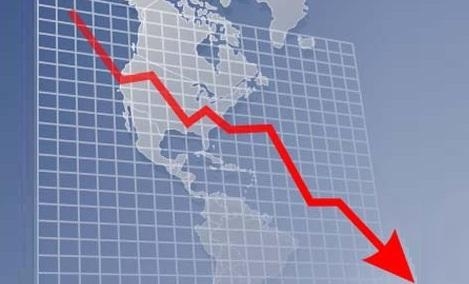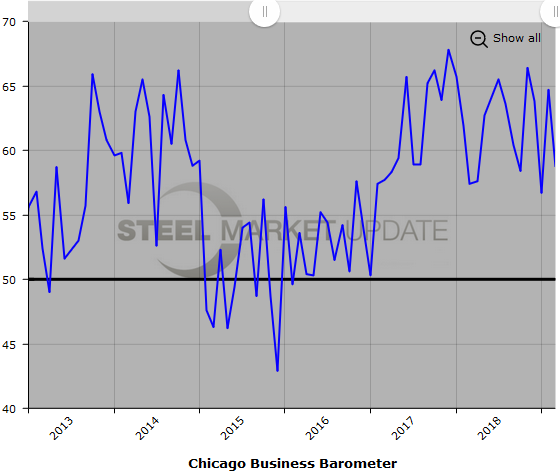Market Data

March 30, 2019
Chicago Business Barometer Slips in March
Written by Sandy Williams
A pullback in production and orders caused the Chicago Business Barometer to fall six points in March to a reading of 64.7. The barometer averaged 60.0 in the first quarter of 2019, a 3.5 percent drop from Q4 2018 and a decline of 3.3 percent compared to Q1 2018.
“Although the barometer has comfortably remained above the 50-neutral level for more than two years now, survey evidence points to a slight slowdown since last year,” said Shaily Mittal, Senior Economist at MNI.
Order backlogs were sharply reduced, with the index component falling into contraction for the first time since January 2017. Supplier deliveries were relatively stable during the month, although the quarterly average was at its lowest level since Q2 2017.
The index for inventories fell into contraction for the second time in eight months, dropping 12 percent from the previous quarter to its lowest level since Q4 2016.
Employment levels were stable in March and slightly above the three-month and 12-month average.
The prices paid index was at its lowest level since August 2017. MNI Indicators noted a reversal from previous years where firms usually have higher gate prices in Q1 compared to Q4.
Incoming orders are expected to increase in the second quarter, said 45.8 percent of firms surveyed, while only 14.8 percent expect orders to decrease.
“The Fed’s break from monetary tightening amid global uncertainty and softer inflation are seen underpinning optimism in the business environment,” added Mittal.
Below is a graph showing the history of the Chicago Business Barometer. You will need to view the graph on our website to use its interactive features; you can do so by clicking here. If you need assistance logging in to or navigating the website, please contact us at info@SteelMarketUpdate.com.








